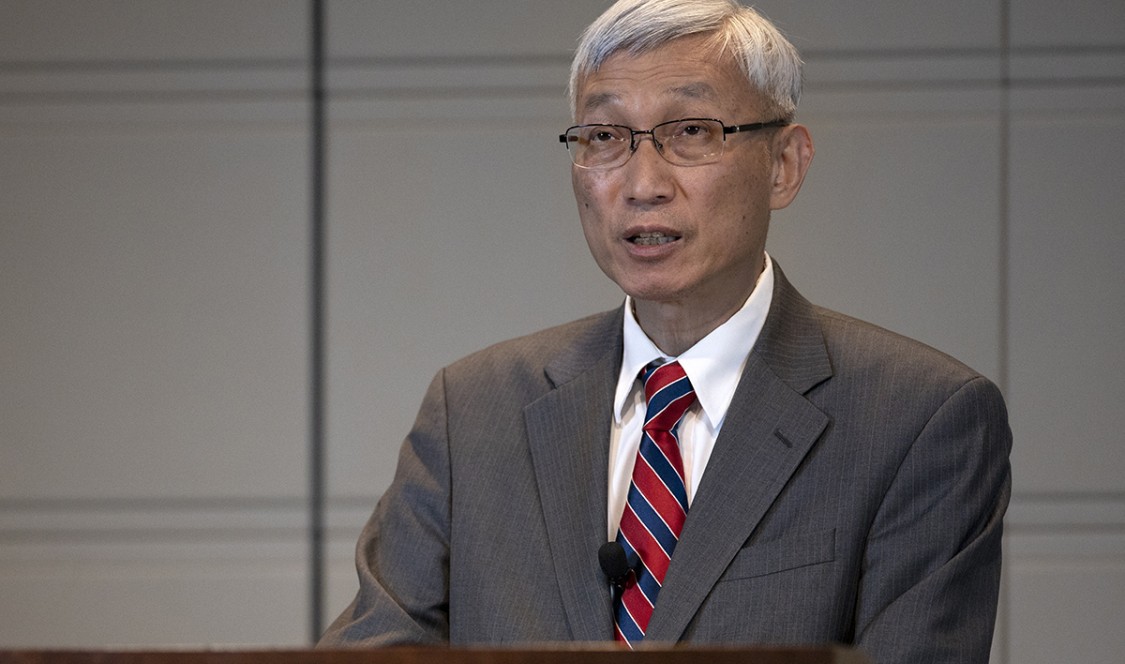Can China escape its totalitarian past?
That was the central question posed by Dr. Minxin Pei, CMC’s Tom and Margot Pritzker ’72 Professor of Government and a George R. Roberts Fellow, as he delivered the prestigious Seymour Martin Lipset Lecture on Democracy in the World.
A leading expert in issues relating to China, Pei detailed how efforts to rapidly modernize its economy have made China prosper, but have not democratized its one-party political system. Ultimately, Pei argued, China’s economic reform will lose its momentum if the government continues to resist democratization.
“Democratizing Communist dictatorships pose unique challenges, as the legacies of totalitarianism cast a long, dark shadow over promising paths to democracies,” said Pei. “But I think it’s a bet worth making that the country’s rendezvous with its democratic future will be delayed, but not prevented.”
A leading expert in issues relating to China, Pei detailed how efforts to rapidly modernize its economy have made China prosper, but have not democratized its one-party political system. Ultimately, Pei argued, China’s economic reform will lose its momentum if the government continues to resist democratization.
“Democratizing Communist dictatorships pose unique challenges, as the legacies of totalitarianism cast a long, dark shadow over promising paths to democracies,” said Pei. “But I think it’s a bet worth making that the country’s rendezvous with its democratic future will be delayed, but not prevented.”
The Lipset lecture—named for the influential 20th century democratic scholar and public intellectual, Seymour Martin Lipset— is an annual platform for individuals who have “made important contributions to our thinking about key issues of democracy through their writings and other accomplishments.”
Pei gave his talk, “Totalitarianism’s Long Dark Shadow Over China,” virtually in December, during an event sponsored by the Embassy of Canada and the National Endowment for Democracy.
In his lecture, Pei cited China’s concentration of power, the lack of diversity of viewpoints in policy-making, excessive risk-taking, and the “pitfalls of strong-man rule” under President Xi Jinping, as ultimately resulting in “adverse outcomes” for the country.
Pei, who was born in Shanghai, said his own thinking on China has evolved. “I began as a true believer in economic reform leading to political change,” he said. “I still believe that, but I now think it’s a much more complex process.” Pei added that he drew upon his own “personal experience in the late 1990s, when I began to observe that China’s political reform had begun to slow down. That led to my second book, China’s Trapped Transition: The Limits of Developmental Autocracy and marked an important change in my thinking of China.”
On the global stage, with U.S.-China relations on a downturn and China’s footprint expanding internationally, Pei noted that “democracies around the world need to strengthen themselves. The most valuable asset for China today is the deterioration of democratic institutions and values, as well as democratic backsliding in new democracies, and, most worryingly, in some of the most well-established democracies, such as the U.S.”
One solution, Pei said, is for democracies worldwide to form alliances. “Democracies must work tightly together to offer help to developing countries — where China still holds great appeal— to develop their economies, strengthen their state capacity, and cultivate democratic values. If these can be adopted, China’s efforts to divide and infiltrate democracies will be largely unsuccessful.”
Watch the entire Lipset lecture and a Q&A with Prof. Pei
—Anne Bergman

